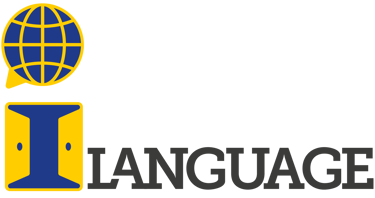Language and Identity: A Journey through Multilingual and Multicultural Education
In a world where people from different cultures and linguistic backgrounds increasingly interact with each other, the role of language in the formation of identity is crucial. This is particularly relevant for children growing up in multilingual and multicultural environments. Let's explore the stories of Jason and Siena to understand how the concept of "iLanguage" can help them find the necessary motivation to maintain and promote their family languages and heritage languages. The "iLanguage" approach makes it possible to link "complex linguistic biographies" with a clearer and, above all, more harmonious picture of identity in relation to the languages and cultures that are part of each individual's life.
MULTILINGUALSLANGUAGES ACQUISITIONDIVERSITYLANGUAGES LEARNING
iLanguage Team
11/3/20232 min read


Jason, 17 years old, grew up in Austria and speaks excellent German. At school he tries to learn English. He speaks Slovenian with his mother, although he cannot read or write it. He communicates with his father in Croatian, although he has no reading or writing skills in this either. At school everyone calls him a foreigner. Some "see" him as a Croatian, others "feel" him as a Slovenian, but he himself complains that no one perceives him as an Austrian. When he is asked about his mother tongue and he explains his family language situation, people are surprised that he does not speak his mother tongue or his father's language.
Sometimes, labeling a language as a "mother tongue" creates great expectations in society, which can cause parents to feel guilty about not being able to teach the language, including writing and reading. This is because children spend hours at school learning other languages, and often there is little time and energy left for the languages they speak at home, as in the case of Siena.
Siena is a 15-year-old young woman who came to Austria from the Far East at the age of 2. She has an excellent command of German and is eagerly learning English and French at school. Although her family language is Arabic, she can understand it but cannot speak, read or write. The “iLanguage” approach could encourage Sienna’s parents to deepen her roots and cultural ties. She would recognize both German and English as an integral part of her personality, while respecting the importance of Arabic, especially on an emotional level. This can be done without pressure or guilt, as she does not yet fully master the language, as would be normal for a girl of her age. At the same time, Siena confessed to us that she feels guilty about not being able to communicate with her relatives in her country of origin and that this means that part of her identity is missing.
Through these examples, we see how a person's identity is shaped by numerous factors, with language playing a central role. In a world where diversity is lived, it is important to use the "iLanguage" approach to value and preserve diversity. Language and identity go hand in hand, and the "iLanguage" approach offers an effective way to clarify "complex linguistic biographies" and create a neutral, inclusive and more appropriate identity in relation to the languages and cultures that are part of each individual's life.
Integrating the concept of 'inherent language' into family and school environments can lead to an enriching learning experience where young people feel valued, motivated and confident in their multilingual skills. It is crucial to promote a culture of linguistic diversity and inclusivity and to make the most of existing multilingual resources at home and at school.
If you have further questions or thoughts on this topic, do not hesitate to share them with us on contact@ilanguage.me. We look forward to an active exchange about language and identity in this diverse world.
We'll read each other soon! 😉


